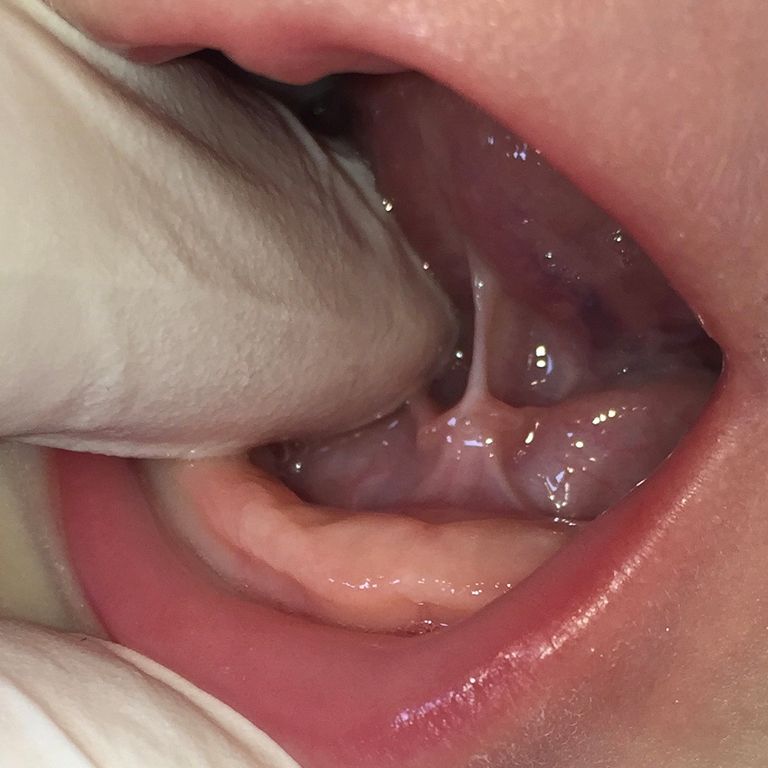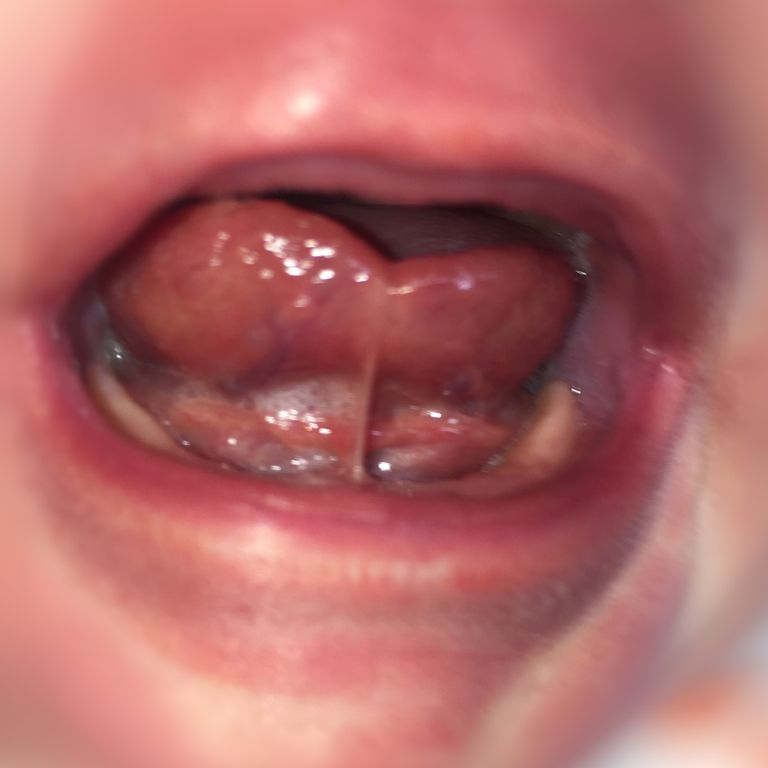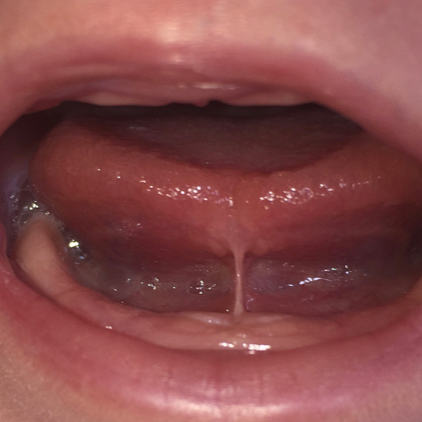Tongue-tie Service
Tongue-tie Assessment - Division of Tongue-tie - Feeding Support
Tongue-tie assessment and the surgical procedure of tongue-tie division (Frenulotomy) is available for both breast and bottle fed infants
Assessment is performed by our qualified practitioner Deb Wilson who uses the recognised Assessement Tool for Lingual Frenulum Function (ATLFF). This involves assessing the function, movement and appearance of your baby's tongue.
The findings will be explained to you, and if your baby is diagnosed with tongue restriction (tongue-tie), the risks and benefits of frenulotomy (tongue-tie division) will be discussed.
If the surgical procedure of tongue-tie division is offered, there is no obligation to go ahead with the procedure at the time of your appointment, you may wish to take more time to make your decision and return another day.

What is a tongue-tie
Ankyloglossia or tongue-tie is where the lingual frenulum (the visible skin connecting the tongue to the floor of the mouth) is short, inelastic or thickened.
The frenulum can be joined from the tip of the tongue to anywhere along the underside of the tongue. It can make the tongue look 'flattened' or 'heart' shaped and can restrict the movement of the tongue

Infant Symptoms
- Poor latch / difficulty in staying attached / taking in 'air'
- for bottle feeding, dribbling at the sides of the mouth
- 'biting' 'chomping' at the breast
- Ineffective milk transfer
- 'fussy' feeding
- Poor or slow weight gain
- 'clicking' noises when feeding
- Long feeds

Maternal Symptoms
- Nipple pain
- Sore or damaged nipples
- Misshapen or blanching nipples
- Low milk supply / ineffective emptying of breasts
- Mastitis
The above are some examples of the symptoms that a tongue restriction (tongue-tie) can present with, but they are not exhaustive.
Equally the symptoms described above may also have other causes.
Some infants who appear to be have a tongue-tie, have no problem feeding or growing.
If you think your baby has a tongue-tie, please contact us to book an assessment or ask your midwife, health visitor, breastfeeding advisor or GP to assess and refer you to your local NHS provider to arrange a thorough assessment by a trained practitioner.
What to expect at your Appointment
A detailed history of both mother and baby will be taken prior to examination of baby's tongue movement, function and appearance. A feed may be observed.
The findings will be discusssed, and if your baby is diagnosed with tongue restriction (tongue-tie), the risks and benefits of frenulotomy (tongue-tie division) will be discussed. The procedure will be carried out after you have had the opportunity to have all your questions answered, feel you have all the information you need to make an informed decision and signed the consent form. There is no obligation to go ahead with the procedure at the time of your appointment, you may wish to take more time to make your decision and return another day.
For the procedure itself, your baby will be swaddled to reduce their movement. A second person (usually a parent) will hold the baby's head secure, whilst the tongue is lifted and the frenulum divided using a pair of sterile, single use, blunt ended curved scissors.
Once the frenulum has been released, a piece of gauze is placed underneath the baby's tongue whilst they are passed back to you so they can have a feed prior to discharge. Babies usually feed within a minute and any bleeding usually stops quickly once baby is feeding.
Most babies tolerate the procedure well with just a short cry before they feed. Breastfeeding support will be available if required.
The wound will be visualised prior to discharge and you will be provided with information on what to expect in terms of healing and recovery to take home.
For some, releasing the tongue-tie has an immediate effect on feeding for both mum and baby. For others it can take time, a few days or very occasionally weeks. This may be due to mother already being particularly sore, or the baby needs time to adjust to increased tongue mobility. A slightly older baby may have adapted compensatory mechanisms to aid feeding and needs to 're-learn' how to feed efficiently.
© Copyright. All rights reserved.
